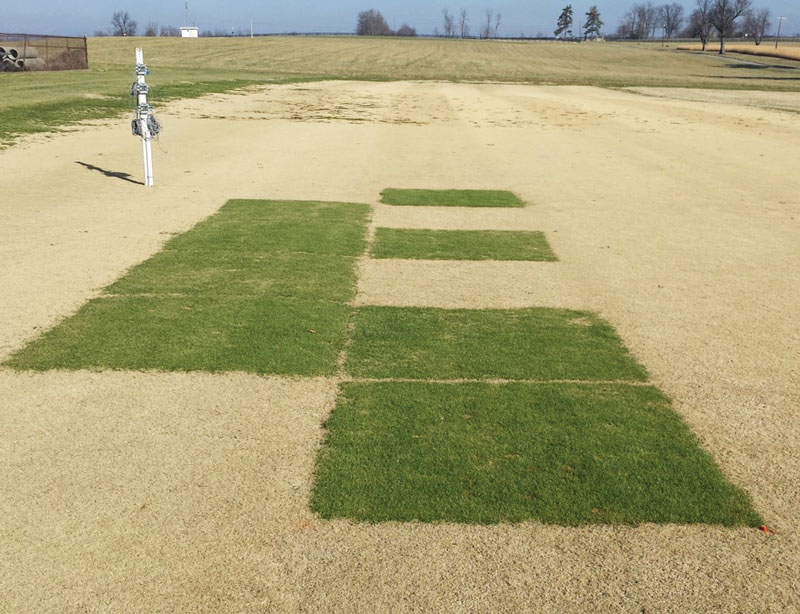
Photo by Gregg Munshaw
Editor’s note: The following research project is in progress and was featured in the Cutting Edge section of GCM. This research project was funded in part by the United States Golf Association.
Bermudagrass is the warm-season grass of choice for golf course fairways and tees across much of the South and in the transition zone. Because bermudagrass turns straw-brown during dormancy, many turf managers often overseed with ryegrass to provide winter green color.
Although a lot is known about winter-overseeded bermudagrass turf management, several questions remain. Is there any positive or negative physiological effect on bermudagrass winter survival? Why is poor stand density common when the overseeded species is removed?
A multistate field study was conducted at four locations: Blacksburg, Va.; Fayetteville, Ark.; Lexington, Ky.; and West Lafayette, Ind. Bermudagrass was overseeded with a ryegrass blend at three rates (0, 650, 1300 pounds/acre; 0, 735, 1470 kilograms/hectare); surface soil temperature was taken via logging temperature probes buried at the crown/soil surface level; carbohydrate content of rhizome/stolon tissue was measured at predetermined sampling dates; and visual observations of quality and green coverage were made.
Soil temperatures were quite variable, and slight increases (1-1.5 F; +0.5 C) were occasionally measured in the overseeded plots compared with the non-overseeded at some sites (for example, Lexington and Fayetteville). Physiologically, total carbohydrates and starches (long-chained sugars) declined with time, regardless of overseeding at the most northern site (West Lafayette), and, at most sites, bermudagrass spring density was poor in overseeded turf (see photo).
These studies reaffirm the potential negative effects of winter overseeding on bermudagrass. Given that overseeding will continue to be used to provide winter color and playability, best management practices to maximize bermudagrass health need additional study.
— Cale Bigelow, Ph.D., Purdue University, West Lafayette, Ind.; Gregg Munshaw, Ph.D., University of Kentucky, Lexington, Ky.; Mike Richardson, University of Arkansas, Fayetteville, Ark.; Xunzhong Zhang, Ph.D., and Mike Goatley, Ph.D., Virginia Tech, Blacksburg, Va.; and Kevin Jackson, Purdue University, West Lafayette, Ind.
Teresa Carson is GCM’s science editor.